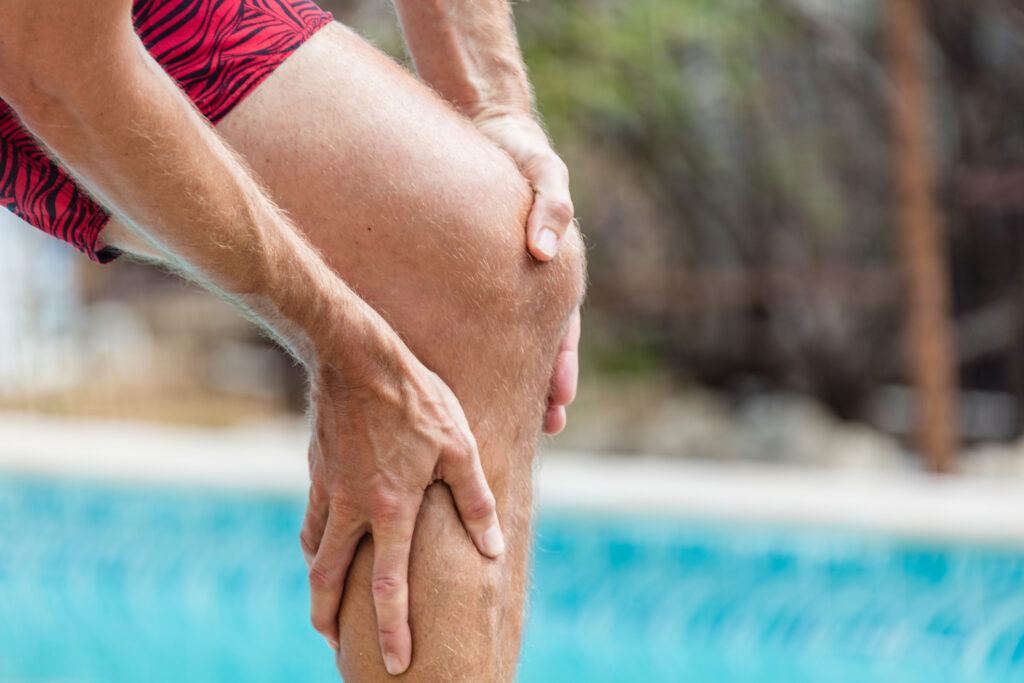
Orthopaedic Institute of Dayton: Offering the BEAR ACL Implant for Faster Recovery
In 2022, Orthopaedic Institute of Dayton (OID) orthopedic surgeon Dr. Molly Tatum became one of the first physicians in the region to use the groundbreaking BEAR ACL implant to ease patients’ anterior cruciate ligament (ACL) pain. Since she began performing the cutting-edge procedure to treat ACL injuries, many of her more than twenty BEAR ACL implant patients are now experiencing less pain and reporting their knees feel “more normal.”
How BEAR ACL Differs from Traditional Reconstruction
Compared to the common ACL reconstruction procedure that involves a tendon graft from another source (e.g. from the patient’s body or a deceased donor), the BEAR ACL implant is the first medical advancement to enable a body to heal itself by enabling the patient’s blood to heal the torn ends of the ACL. That means it is less invasive. Dr. Tatum describes the goal of this newer procedure as getting a patient back to having “native knee mechanics.”
Dr. Tatum performed a BEAR ACL implant on Joe Squeo, 26, a competitive CrossFit athlete and a mechanical engineer, in the spring of 2022. Now that he has been released from care, he offers this insight. “Six months after my surgery I felt better,” he said, “but I listened to my care team and now realize that while my knee may have been pain-free, it really needed a total of twelve months to heal fully.” He worked with that team and now, he is now back to competition.
Success Stories and Patient Outcomes
The procedure for many of Dr. Tatum’s patients speaks for itself, but wider studies also confirm those positive results. The procedure is less invasive than reconstruction and is immensely effective. Years ago, Dr. Tatum saw a potential advantage and sought the necessary training to provide the procedure to her local patients. Now, she continues to gain firsthand experience with it, while providing patients relief.
“It’s important for those suffering from knee pain to realize that the BEAR ACL is not meant to simply get them back to playing sports sooner,” said Dr. Tatum. “Rather it allows the native knee mechanics to be restored. That restoration is the goal.” Compared to a reconstruction, data from the BEAR show that it decreases the risk of tearing the contralateral ACL. However, she reports that since she began offering the BEAR ACL implant more than a year ago, she has not had to revise even one reconstruction for any of those patients.
Although orthopedic care cannot fix everything, it can almost always improve a situation. Suffering with pain is never a good strategy. “That’s why it’s critical to evaluate the whole patient and determine what risk factors exist for him or her,” Dr. Tatum said. “Once identified, our OID care team members work together with the patient to treat the current injury and damage, and to create a realistic plan to change what is modifiable for each specific patient. For the right patient, that treatment is implanting the BEAR ACL.”
Good candidates for BEAR ACL implants should meet these three criteria:
· 14 years of age or older and skeletally mature;
· Have a complete rupture of the ACL confirmed by an MRI; and
· Can abide by postoperative rehabilitation plan and attend physical therapy.
Learn More and Schedule an Appointment
For more information or to schedule an appointment, visit https://www.orthodayton.com/.